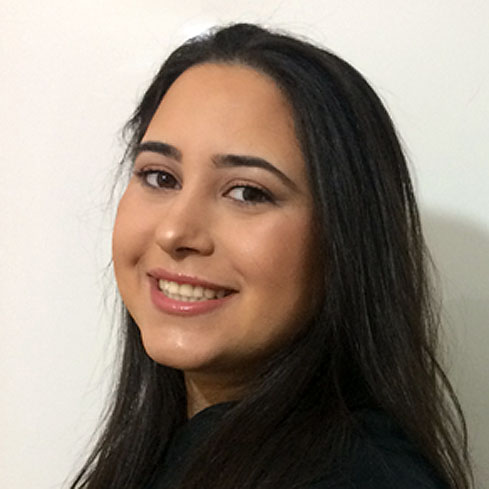
How I got into the role
Before I share my journey, I think it’s so important to highlight that for trainee clinical psychologists, each journey is so different!
For me, I completed BSc in psychology before completing a MSc in research in clinical psychology. After this, I began working within the NHS as an assistant psychologist.
As an assistant, I met many clinical psychologists who became role models. They showed me the different ways clinical psychologists can contribute to the NHS (e.g. service development, clinical research, psychological interventions) and through this, I knew I wanted to do the same. I therefore applied for the Doctorate in Clinical Psychology (DClinPsy) and, after a few unsuccessful applications, I began my training at University of Hertfordshire in 2018.
This training includes 5-6 placements over three years and one of these includes a placement in Learning Disability Services.
What I do
As clinical psychologists in training, our week is divided between personal study periods, learning at university, and learning on placement. For example, my week may include two-and-a-half days on placement, half a day personal study time, one day of clinical lectures, and one day of research.
During my learning disabilities placement, I supported clients through clinical assessments, developed formulations, implemented interventions (e.g. Positive Behavioural Support Training for carers), and evaluations. This allowed me the opportunity to use and develop skills learnt at university. Additionally, through regular weekly clinical supervision, I was able to learn further skills, and psychological theories and models to support clients, families, carers (e.g. staff training), and colleagues.
Our teaching also includes research skills, which we also take to and develop on placement. For example, during my time in my learning disabilities placement, myself and other trainees worked together to collect and analyse feedback from clients about their experience of services during the coronavirus pandemic.
We also write reports and letters, and although I have always been worried about this because of my dyslexia, I have felt supported by everyone I have met and this does not impact on my role as a trainee clinical psychologist.
The best bits
Reflecting back on my journey, before and during training, while it has felt like a very long journey and there have been some difficult times (e.g. low pay as an assistant, or university deadlines), I have met so many amazing people along the way who I remain in contact with. This was no different in my learning disabilities placement where I was also able to meet trainees from some of the London psychology courses!
What I enjoyed the most about my learning disabilities placement was the opportunities I had to meet and work systemically with families, carers, and my colleagues from different disciplines. This sense of working together was in line with my cultural norms and values of working together, within families and communities. This, as well as the amazing people I met during my placement, has made me look forward to one day returning to Learning Disabilities Services as a qualified clinical psychologist.